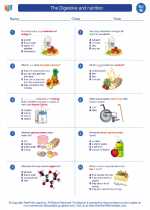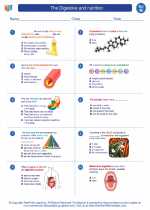Insulator
An insulator is a material that does not easily allow the flow of electricity or heat through it. This is because insulators have tightly bound electrons that do not move easily. As a result, insulators are used to prevent the flow of electricity or heat, and are often used as protective materials in electrical and thermal applications.
Properties of Insulators
- High resistivity: Insulators have high resistance to the flow of electricity, which means they do not conduct electricity well.
- Low thermal conductivity: Insulators are poor conductors of heat, so they are used to prevent the transfer of heat in many situations.
- Non-magnetic: Most insulators are non-magnetic, which means they do not interact with magnetic fields.
- Brittle: Some insulating materials are brittle and can break easily under stress.
Examples of Insulators
Common examples of insulating materials include:
Applications of Insulators
Insulators are used in a wide range of applications, including:
- Electrical wiring: Insulating materials are used to coat and protect electrical wires to prevent the flow of electricity and reduce the risk of electrical hazards.
- Building insulation: Insulating materials are used to reduce the transfer of heat in buildings, helping to maintain comfortable indoor temperatures and save energy.
- Electronic devices: Insulators are used to isolate and protect electronic components from electrical interference and damage.
- High-voltage equipment: Insulators are used to support and isolate high-voltage power lines and electrical equipment, preventing electrical leakage and ensuring safety.
Study Tips
To understand the concept of insulators and their properties, consider the following study tips:
- Review the atomic structure of insulating materials and how it contributes to their insulating properties.
- Explore real-life examples of insulators in everyday applications to understand their importance and function.
- Conduct experiments to test the insulating properties of different materials and observe their behavior in preventing the flow of electricity and heat.
- Learn about the role of insulators in electrical safety and how they help prevent electrical accidents and hazards.
◂Science Worksheets and Study Guides Eighth Grade. The Digestive System & Nutrition
Study Guide The Digestive and nutrition
The Digestive and nutrition  Worksheet/Answer key
Worksheet/Answer key The Digestive and nutrition
The Digestive and nutrition  Worksheet/Answer key
Worksheet/Answer key The Digestive and nutrition
The Digestive and nutrition  Worksheet/Answer key
Worksheet/Answer key The Digestive and nutrition
The Digestive and nutrition  Vocabulary/Answer key
Vocabulary/Answer key The Digestive and nutrition
The Digestive and nutrition  Vocabulary/Answer key
Vocabulary/Answer key The Digestive and nutrition
The Digestive and nutrition  Vocabulary/Answer key
Vocabulary/Answer key The Digestive and nutrition
The Digestive and nutrition  Vocabulary/Answer key
Vocabulary/Answer key The Digestive and nutrition
The Digestive and nutrition  Vocabulary/Answer key
Vocabulary/Answer key The Digestive and nutrition
The Digestive and nutrition 

 Worksheet/Answer key
Worksheet/Answer key
 Worksheet/Answer key
Worksheet/Answer key
 Worksheet/Answer key
Worksheet/Answer key
 Vocabulary/Answer key
Vocabulary/Answer key
 Vocabulary/Answer key
Vocabulary/Answer key
 Vocabulary/Answer key
Vocabulary/Answer key
 Vocabulary/Answer key
Vocabulary/Answer key
 Vocabulary/Answer key
Vocabulary/Answer key

The resources above cover the following skills:
Reading Standards for Literacy in Science and Technical Subjects
Craft and Structure
Determine the meaning of symbols, key terms, and other domain-specific words and phrases as they are used in a specific scientific or technical context relevant to grades 6-8 texts and topics.